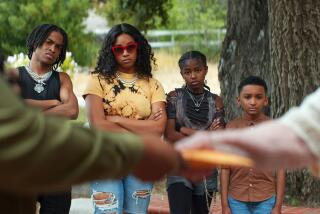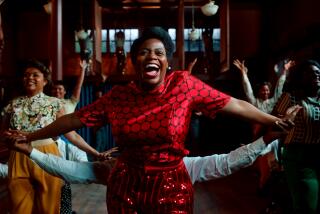Latest in a string of ‘Little Women’ retellings suffers from modernization
“Little Women,” Louisa May Alcott’s tale of sisterhood and hardship, is a much beloved story female filmmakers have embraced often over the years. Director Gillian Armstrong and screenwriter Robin Swicord adapted the book memorably in 1994, and Oscar-nominated director Greta Gerwig announced her next project will be her take on “Little Women.” There must be something in the ether, because there’s yet another version of “Little Women” being released, written and directed by Clare Niederpruem.
Distributed by faith-based movie purveyor Pureflix, this version is so far the only adaptation (there’s also a 2017 miniseries) set in the present day, and while it seems like a fun idea to update the trials and travails of the March sisters, dragging the story into the 21st century shows just how of its era “Little Women” truly is. For starters, since when have you heard of a girl selling her hair for money these days?
That’s one of the most indelible moments of the fiery Jo March, played here with vim and vigor by Sarah Davenport. Watching Jo intellectually tussle with men and boss around her younger sisters, all in the name of her individuality and dedication to the creative life as a writer, you can’t help but realize, in the harsh light of modernity, that Jo truly is a toxic individual. Or at least this Jo is a self-aggrandizing bully who makes you wonder why anyone can stand to be around her. The sisters don’t have much of a choice, but the men do — neighbor Laurie (Lucas Grabeel) and Freddy Bhaer (Ian Bohen), the editor of Jo’s misbegotten young adult fantasy novel that she essentially forces him to read.
This “Little Women” adaptation is faithful to a fault, which results in a very strange world where this group of five present-day women depends on men for their social lives and careers — basically anything that gets them out of their cozy house of feminine fantasy. The film dutifully replicates story beats from the novel, and as such, brings Civil War era gender politics to the story of five unruly and highly educated women. They might talk about cellphones and Google, but there’s something distinctly retrograde about the way the women function in the world, needing Laurie as an escort in the social world or older male editors as gatekeepers for Jo’s creative outlet. We all know Jo would be a blogger with a feisty Twitter account in this day and age.
Lea Thompson plays the warm and wise Marmee, and she’s lovely in the role, in which she is perfectly cast. All the performers are suitably allocated to their personae, though as Jo, Davenport steamrolls everyone else on screen. No one can get in a word edgewise around her, which is supposed to be charming and enchanting but is grating and unnecessary.
To update the story of a group of women in 19th century Massachusetts struggling to get by while the man of the house is away at war, the whole thing needs an overhaul, taking into account the women’s movement and the cultural shifts in class, labor and communities that make our world so very different from mid-19th century Massachusetts. Does Marmee even have a job? Those contextual cultural shifts have a huge impact on the story beats of “Little Women,” which is very much of its time, and this adaptation completely bungles the update.
Katie Walsh is a Tribune News Service film critic.
-------------
‘Little Women’
Rated: PG-13 for some thematic elements and teen drinking.
Running time: 1 hour, 52 minutes
Playing: Starts Sept. 28 in general release
More to Read
Only good movies
Get the Indie Focus newsletter, Mark Olsen's weekly guide to the world of cinema.
You may occasionally receive promotional content from the Los Angeles Times.










